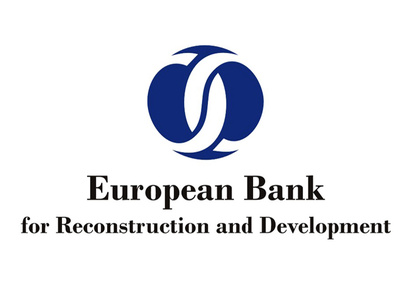Large forex reserves to enable Azerbaijan to mitigate risk

By Gulgiz Dadashova
Although oil price shocks and output disruptions remain the biggest
challenges in the short term for Azerbaijan, large foreign exchange
reserves give the authorities room for mitigating risk, the
European Bank for Reconstruction and Development says in its latest
report.
Azerbaijan’s strategic currency reserves increased by $ 3.5
billion to about $54 billion in the first nine months of 2014. For
the ratio of foreign currency reserves to GDP, which is 74 percent,
Azerbaijan is in the first 20 countries in the world.
The EBRD Transition Report 2014: Innovation in Transition issued on
November 19 noted that the government has been successful in
leveraging the country’s hydrocarbon potential over the last decade
and hence in promoting growth and reducing poverty.
Azerbaijan, according to the report, saw slowdown in economic
growth in the past year due to some oil output disruptions. “Growth
outside the hydrocarbon sector continued, propped up by government
spending. Inflation has remained subdued, while external and fiscal
surpluses slowly narrowed,” the report reads.
“Growth slowed from 5.8 percent in 2013 to a preliminary 2.5
percent year-on-year in the first nine months of 2014. The
unexpected decline in oil output in early 2014 weighed on growth.
The non-oil sector continued to grow fast, albeit at a slower pace
than before. A substantial fuel price increase in December 2013,
the first since 2007, did not have a lasting effect and inflation
has remained low, at 1 percent year-on-year in July 2014,
constrained by stable food prices.
“With the oil price relatively stable, revenues from hydrocarbon
exports remained virtually flat. Non-oil imports continued to
surge, boosted by rising incomes and consumer credit. As a result,
the overall current account surplus narrowed further from 22
percent of GDP in 2012 to 17 percent of GDP in 2013. The ban on
some used car imports that do not meet the Euro 4 fuel standard
requirement, introduced in April 2014, could temporarily reverse
this trend, as evident from the preliminary imports data for the
second quarter of 2014. The external buffers remained ample, with
foreign exchange reserves and oil fund assets amounting to $49.1
billion (65 percent of GDP) as of the end of June 2014.
“The Central Bank of Azerbaijan (CBA) continued to maintain its policy of a stable exchange rate against the dollar.”
The financial sector intermediation continued to expand and the presence of the sovereign and of corporate in international capital markets has increased.
The report reminds that in the World Economic Forum’s Global Competitiveness Report 2014-2015 Azerbaijan maintained its relatively high position – 38th out of 144 countries – which is the second-highest ranking among the former Soviet countries.
This high ranking is largely due to a stable macroeconomic environment.
The bank also highlighted that major infrastructure projects are
on track, as in 2013 Azerbaijan determined the Trans-Anatolian
(TANAP) and Trans-Adriatic (TAP) pipelines as being the main routes
for Caspian gas to European customers.
Diversification of the economy is recognized by the government as
being an urgent priority, the bank notes. “In its Azerbaijan 2020
vision, rolled out in late 2012, the authorities viewed enhancing
competitiveness and export growth as necessary steps towards
developing the non-oil sector. The government’s approach to
developing the non-oil sector of the economy mainly included
pursuing government-sponsored infrastructure projects linked to the
use of oil wealth, as well as directly intervening to stimulate
product diversification, as testified by its drive to build
industrial parks.”
The EBRD further stresses that to reduce dependence on the hydrocarbon sector, further progress should be made in improving the country’s business climate, reducing corruption and strengthening competition policy. “Completion of the World Trade Organization accession could increase international investment and encourage development of the non-oil sector over time,” it reads.
---
Follow Gulgiz Dadashova on Twitter: @GulgizD
Follow us on Twitter @AzerNewsAz
